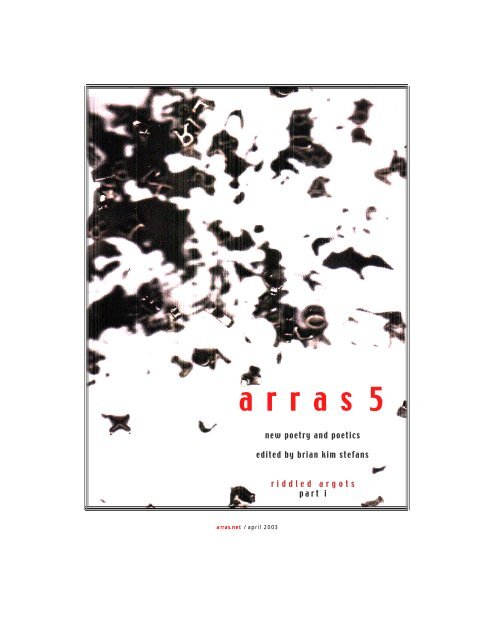Third Factory/Notes to Poetry Attention Span 2011 | Brian Kim Stephans
Junot Díaz | The Brief Wondrous Life of Oscar Wao | Riverhead | 2007
I don’t read a lot of fiction. I’m teaching Only Revolutions, by Mark “House of Leaves” Danielewski, in my contemporary American poetry class, so I should probably read House of Leaves. I’m also teaching the first section of the Changing Light at Sandover and Alice in Wonderland (the class is subtitled “The Ludic Turn”). Anyway, this was a beach read; I read my stepmother’s copy while I was visiting them in Long Island. I actually did read some of this on the beach. Díaz is obviously talented and very smart, and it didn’t feel like what it is, Bolaño-lite. There is sex, sexual addiction, political violence, abusive cracked parents, picaresque descriptions of overseas travel, and something like tragedy. The major annoyances were the little eye-wink inclusions of academic jargon (it’s a very “teachable” book in that way) which was couched in a pseudo-hipster Latino American speak, to make it go down easy. It’s meta-identity literature, but not meta enough. He created a pretty interesting synthetic language that could accommodate the various audiences he was trying to reach, and deserves credit. In any case, I enjoyed it pretty much. I’m sure Javier Bardam will have a role in the movie.
Roberto Bolaño | Nazi Literature in the Americas | New Directions | 2008
The Savage Detectives was the best novel I had read in a long time, at times Dostoyevskian in its grandeur, scope, generosity and addiction to visionary pain, and always threatening to have “magical realist” elements (that might have just been me), but never making good on that threat. It ends with the discovery of a concrete poem—who would have thunk? This collection shows the Borgesian side of Bolaño, though never with that ‘pataphysical hook that makes Borges so addictive. I enjoyed it but read it quickly; it’s actually become the model for my anthology on Los Angeles poetry, as I’m realizing that I should really tell stories, rather than convince with keen analysis, in the volume—people might actually read it. I think the issue of what makes these writers “Nazis” might have more resonance with Latin American readers, as some chapters merely touch on this connection.
Craig Dworkin and Kenneth Goldsmith, eds. | Against Expression: An Anthology of Conceptual Writing | Northwestern | 2011
I gave my author’s copy of this as a going away present to an Italian art historian friend who was staying with me for a month earlier this year—she’s stopped returning my emails. I ordered a desk copy, which I then gave to my sister’s boss, thinking he could plumb it for ideas for outdoor text/light installations—my sister was laid off a month later. This is a dangerous book. It ruins lives, but only slowly. That’s why I’m ordering five more as potential gifts for people I would like to quietly run out of my life. Seriously, the brief introductions to the work are great, and I suspect it’s quite economical and “interesting” given the piles of empty text it is attempting to condense. I can’t offer any intelligent commentary until I order a new one.
Mark Zuckerberg | Facebook | The Interweb | 2004-2011
Yes, I think he writes all of it. Facebook is the TV of today. Facebook makes nothing happen. It’s all trivial, and makes many of the people I admire appear quite trivial, which of course isn’t their faults. I just don’t need to know what you eat. I like it when people “like” me, which I don’t like. I’m off Facebook. I was reading it too much. I use Twitter.

No comments:
Post a Comment